J-pop, natively also known simply as pops, is a musical genre that entered the musical mainstream of Japan in the 1990s. Modern J-pop has its roots in traditional Japanese music, but significantly in 1960s pop and rock music, such as The Beatles and The Beach Boys, which led to Japanese rock bands such as Happy End fusing rock with Japanese music in the early 1970s. J-pop was further defined by new wave groups in the late 1970s, particularly electronic synth-pop band Yellow Magic Orchestra and pop rock band Southern All Stars.
Kyosuke Himuro is a former Japanese musician and singer-songwriter. He was lead vocalist of the rock band Boøwy from 1981 to 1988. After the band disbanded he started a successful solo career, becoming one of Japan's best-selling artists. In 2003, HMV Japan ranked Himuro at number 76 on their list of the 100 most important Japanese pop acts. He currently lives in Los Angeles, California, where he purchased a 12,500 square feet palatial residence in Beverly Hills in 2004 for $6.4 million, which was previously owned by Shaquille O'Neal.

"Free & Easy" is a song written by Ayumi Hamasaki and Dai Nagao for Hamasaki's album Rainbow. The song, the first single from Rainbow and Hamasaki's 26th total, was released in Japan on April 24, 2002.

The Soledad Brothers are an American garage rock trio from Maumee, Ohio. Taking strong influence from blues rock, the band consisted of Ben Swank on drums, Johnny Walker on guitar and vocals, and Oliver Henry on sax and guitar. The band produced four albums: Soledad Brothers (2000), Steal Your Soul and Dare Your Spirit to Move (2002), Voice of Treason (2003), and The Hardest Walk (2006).

Unearthed is a box set by Johnny Cash, released two months after his 2003 death. It was produced by Rick Rubin and released by American Recordings.
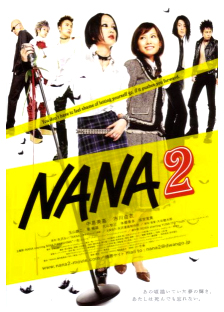
Nana 2 is the sequel to the Japanese movie Nana, an adaptation of the manga by Ai Yazawa, directed by Kentarô Ôtani. Production for the movie began in mid-September and only one and a half month shootings finished the movie in time for the December 9, 2006 release.

Hisashi Tonomura, better known by his stage name HISASHI, is a Japanese musician best known as the lead guitarist of the rock band Glay. He is particularly associated with the brand Tokai, designing a series of personal signature guitars, based on their Talbo model.
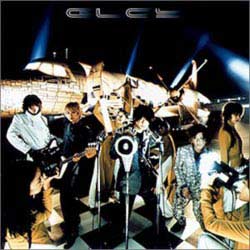
One Love is the seventh released album from the Japanese rock band Glay. This album is the first one to have song compositions from each member.

Heavy Gauge is the 6th album by Japanese rock band Glay. This is the first album which Glay dabbles in the genres of progressive rock and gospel, using progressive chords on songs like the self-titled track, and using gospel choirs in songs such as "Will Be King" and "Happiness". This album also marks a milestone in Glay's career with their hit song "Winter, Again". The song won Single of the Year (1999) at the Japan Record Award. Many songs from the album were used in the Meiji Seika Kaisha advertising campaigns for their "Horn" and "Flan" product food lines. The album reached #1 on Oricon charts and sold about 2,370,000. The album was certified "Double Million" by the Recording Industry Association of Japan (RIAJ).

Glay Rare Collectives Vol. 1 and 2 are the third and fourth released collection albums from the Japanese rock band, Glay. Unlike Review and Drive: Glay Complete Best, these two double disc CDs feature all of the B sides from their singles that were released from their debut to "mata koko de aimashou" as well as some other songs originally used for different works and not featured in any of their albums or singles. The first volume features the original song "Shiawase ni naru, sono toki ni", while the second volume featured the then newly released song "Itsuka".

Pure Soul is the fifth released album from the Japanese rock band Glay. The album was a slight departure from the rock and power ballad sound the band sported with their previous albums. Pure Soul brought forth a faster rock sound. The album contains such hits as "Yuuwaku", "Soul Love", the concert classic "I'm in Love", and the title track "Pure Soul". The album peaked at #1 on Oricon charts and sold about 2,430,000. It was certified "Triple million" by the Recording Industry Association of Japan (RIAJ).
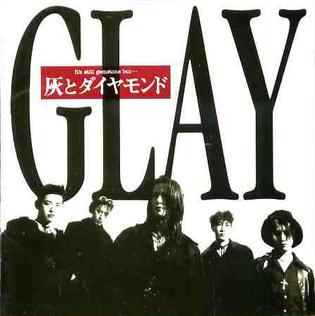
Hai to Diamond is the debut album by Japanese rock band Glay. It was released on May 25, 1994 on the independent label Extasy Records and peaked at #26 on the Oricon chart, with more than 100,000 copies sold.
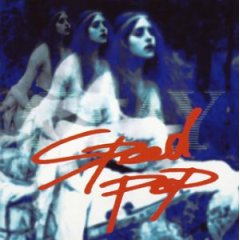
Speed Pop is the second album by Japanese rock band Glay. It is the band's major label debut album, was released on March 3, 1995 and peaked at #8 at Oricon charts, with 320,150 copies sold.

The Frustrated is the ninth album by Japanese rock band Glay. It was released on March 24, 2004, and peaked at #2 at Oricon charts, with 241,485 copies sold. It was certified Platinum by the Recording Industry Association of Japan (RIAJ).

'10' is the 9th studio album, and 10th overall release by the Rock band Enuff Z'Nuff. By fans, it is sometimes seen as the poppier counterpart to their harder sounding Paraphernalia record, as both albums were recorded and released during a similar time frame. The album cover art for '10' is a direct reference to the band's debut album, released a decade earlier. While the original U.S. edition of the album included a video for the single "There Goes My Heart" in QuickTime format, '10' was released first in Japan through the Pony Canyon label. The band also toured Japan in 2000 in support of the CD, which peaked at #60 on the Japanese music charts. The song "There Goes My Heart" was later featured in a trailer for the 2008 film The Promotion.

"Time Limit" is a song by Japanese musician Hikaru Utada. It was released as a double A-side single with the song "For You" on June 30, 2000.
The Great Vacation Vol.2: Super Best of Glay is a compilation album by Japanese band Glay, released on October 21, 2009. It reached #1 at Billboard Japan Top Albums chart and #1 on Oricon charts, selling sold 187,732 copies. It was certified gold for shipment of over 100,000 copies.
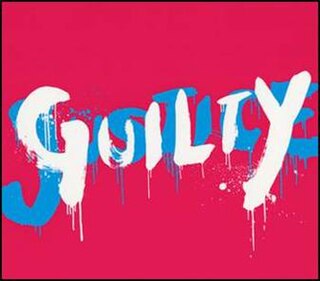
Guilty is the twelfth studio album by Japanese pop rock band Glay, released simultaneously with Justice on January 23, 2013. It reached #2 at Oricon charts, behind Justice only—the same happening at Billboard Japan Top Albums - and #89 at their 2013 year-end chart. Both albums mark the second release of the band under their own label Loversoul Music & Associates.
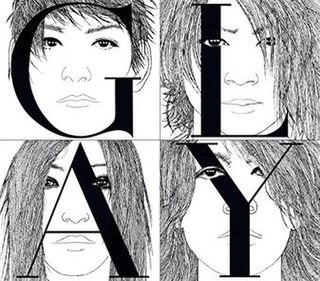
Music Life is the thirteenth studio album by Japanese pop rock band Glay, released on November 5, 2014. It reached #2 at the Oricon weekly charts, #5 at their monthly chart for November, and #58 at their 2014 Year-End Chart, besides reaching #4 at the Billboard Japan Top Albums chart.

















